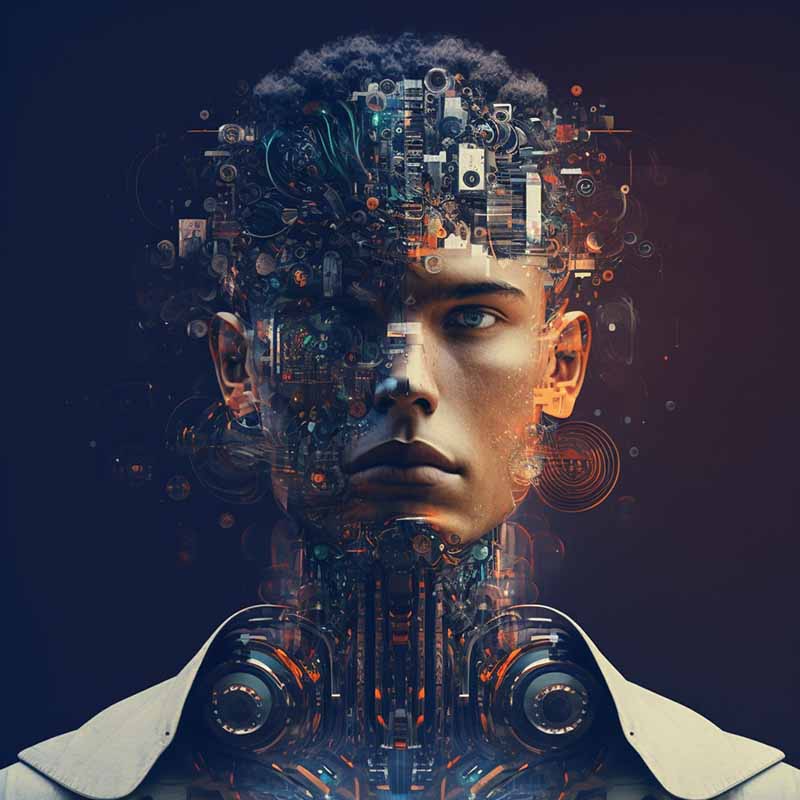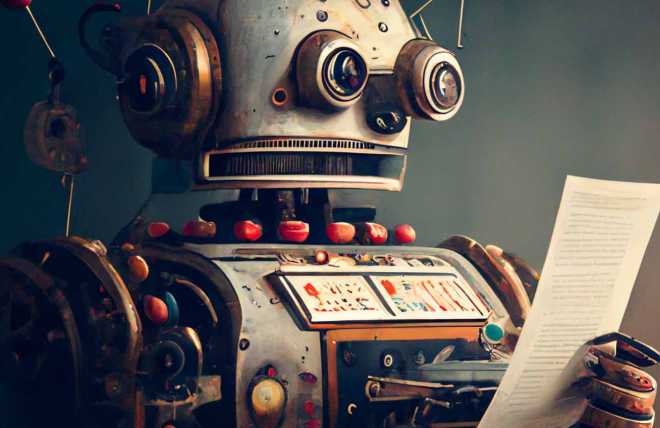Connecting with Your Audience: Personalizing Your Content with AI
AI-Powered Personalization: Boost Your Engagement
Leveraging AI for Tailored Content: A Deeper Look into Content Personalization
Introduction
In a content-saturated digital world, making your content unique and relevant to your audience is a challenge that marketers and content creators face every day. A powerful strategy to address this is personalization. By personalizing content for different audiences, creators can foster deeper relationships with their audience, increase engagement, and drive more conversions. Today, AI technology has made this process more efficient and impactful.
Unpacking Personalization
Personalization is about delivering content and experiences that are aligned with the specific needs, interests, and preferences of individual users. It can manifest in various forms, such as product recommendations, targeted email campaigns, customized landing pages, and personalized content.
The effectiveness of personalization stems from its ability to make content more engaging and relevant to users. It helps build a stronger bond with the audience, and by delivering targeted messages at the right time, it aids in boosting conversions.
The Role of AI in Personalization
AI is a game-changer in the realm of personalization, providing a way to analyze vast amounts of user data and deliver personalized content at scale. Here's how AI is making a difference:
Analyzing User Data
AI tools can process large volumes of user data, including demographic details, browsing habits, and purchase history. This analysis provides a deeper understanding of the audience, paving the way for creating targeted messaging and personalized content that truly connects with individual users.
Content Recommendation
AI-powered content recommendation engines can monitor user behavior and suggest relevant content to individual users. These recommendations, tailored based on a user's past behavior, preferences, and interests, result in a more engaging user experience.
Customizing User Experiences
AI can also customize user experiences by delivering content that aligns with the specific needs and preferences of individual users. An example of this is AI-powered chatbots that offer personalized customer service, answering queries and providing assistance based on the unique needs of users.
Optimizing Content
AI assists content creators in optimizing their content for individual users. By analyzing user behavior and preferences, AI helps identify the type of content that resonates most with different audience segments. This leads to the creation of more engaging and effective content that drives conversions.
The Future of Personalization
As AI technology continues to evolve, we can expect more exciting advancements in personalization. AI-powered voice assistants may soon be able to offer personalized recommendations based on a user's voice and tone. AI could also aid content creators in generating text, images, and videos tailored to the specific needs and preferences of individual users.
Harnessing AI Tools for Personalization
Several AI tools are available to assist in personalization, including natural language processing (NLP) algorithms, machine learning models, and data analytics platforms. Some notable examples include Marketo, Optimizely, and IBM Watson.
One tool worth exploring is the AI Score for Marketers™ from the Marketing Artificial Intelligence Institute. It helps marketers understand and prioritize AI use cases relevant to their operations and provides personalized recommendations for AI-powered vendors. This tool is particularly useful in aiding marketers to intelligently automate marketing tasks and improve prediction abilities, ultimately leading to cost reduction and revenue growth.
Conclusion
AI is significantly transforming content creation by enabling personalization at scale. By analyzing large amounts of user data and tailoring content based on this data, content creators can form stronger relationships with their audience and drive more conversions. As AI continues to evolve, more exciting developments in personalization are on the horizon. Content creators who embrace AI-powered personalization will be better equipped to stay ahead of the curve and deliver compelling content that resonates with their audience.

Personalization is not just about better content, it's also about a better experience.
Faq
- Q: How can AI help with personalizing content?
A: AI tools can analyze user data, preferences, and behavior to provide insights that enable content creators to tailor their messaging to specific audiences. This can result in higher user engagement and better content performance. - Q: Is personalization important for content creation?
A: Yes, personalization can help content creators connect with their audience on a deeper level and improve user engagement. By tailoring their messaging to specific audiences, content creators can provide more relevant and valuable content to their users. - Q: What are some AI tools that can help with personalization?
A: There are a variety of AI tools available that can help with personalization, including natural language processing (NLP) algorithms, machine learning models, and data analytics platforms. Some examples include Marketo, Optimizely, and IBM Watson.
Pros and Cons
Pros:
- Personalization can help content creators connect with their audience on a deeper level
- AI tools can provide insights that enable content creators to tailor their messaging to specific audiences
- Personalization can result in higher user engagement and better content performance
Cons:
- Personalization requires a deep understanding of your audience and their preferences
- AI tools can be expensive and require technical expertise to use effectively
- Overly aggressive personalization can come across as invasive and turn users off
Resources
- ChatGPT-4 for Beginners: Boost Productivity and Skyrocket Your Earning Potential with Conversational AI Solutions by Jerry Sinclaire (Author)
Description: This comprehensive guide to ChatGPT-4 provides an overview of its capabilities, discusses its evolution and applications, and offers expert advice on maximizing its usage. It promises to enhance productivity and boost earnings, providing practical examples, real-life use cases, and bonus content on effective prompt crafting. - ChatGPT for Social Media Marketing: The Supreme Guide to Thriving on Social Media with the power of Artificial Intelligence by Kevin Stone (Author)
Description: This book provides a guide to utilizing ChatGPT for social media marketing. It covers the understanding and application of ChatGPT for audience expansion, content creation, marketing campaign optimization, and data analysis, ultimately aiming to boost brand visibility and efficiency. - Artificial Intelligence: A Simple Guide to Boosting Business Profits by Daniel Desta (Author)
Description: This comprehensive, easy-to-understand guide enables business owners to integrate AI into various operations, boosting efficiency and profitability. It includes step-by-step instructions, strategies to overcome AI adoption challenges, and real-life examples, making it accessible regardless of technical background. - The ChatGPT Billionaire: 15 Proven Methods to Make Money Online Every Month. The Complete, Practical and Step By Step Guide to Earn Money with Artificial Intelligence by Ryan Turner (Author)
Description: "The ChatGPT Billionaire" is a comprehensive guide that teaches readers how to leverage ChatGPT to create passive income opportunities, including affiliate marketing, content creation, and digital product sales. The book promises to reveal secrets for consistent profits, effective results, and business automation, all without requiring technical expertise. - Chat GPT Bible - 10 Books in 1: Everything You Need to Know about AI and Its Applications to Improve Your Life, Boost Productivity, Earn Money, Advance Your Career, and Develop New Skills by Codi Byte (Author)
Description: "Chat GPT Bible - 10 Books in 1" is a comprehensive guide aiming to help readers master AI with clear explanations and practical examples. It covers applications of Chat GPT in various fields, with bonus books focused on marketing strategies, programming, writing, and business management.

